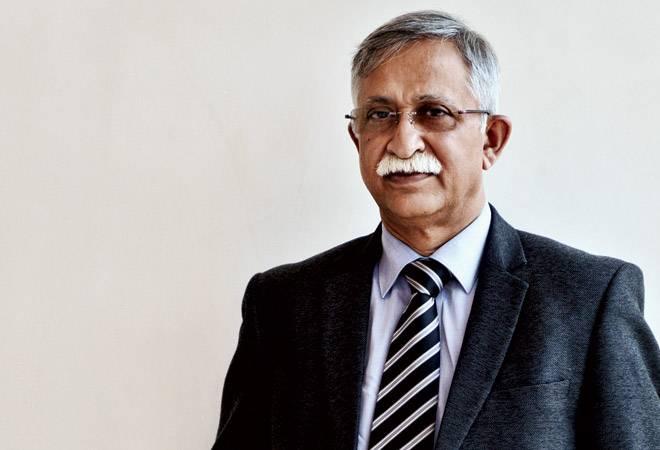Innovative products, effective distribution models and wider use of technology are required for the growth of insurance in India. Pushan Mahapatra, Managing Director and Chief Executive Officer of SBI General Insurance, talks with Teena Jain Kaushal on how the industry is gearing up for changes.
Q: Several new players are about to enter the general insurance space. Will it lead to aggressive pricing?
A: The general insurance space has been fairly competitive in terms of pricing even before the emergence of the recent entrants. The competition meant insurers must focus on innovation in products and processes. For retail products, servicing, brand and reach of the insurer also play an important part.
Q: How are insurers integrating technology for effective claim settlements?
A:Some key technologies which will impact claim settlements include the availability of e-KYC (know your customer), mobile payments, customer’s self-service options for claim logging and tracking, telematics data and location data tracking. These technologies are not yet extensively used, but as they lead to better loss control, their adoption is likely to increase. Some use cases such as accessing third party data (say, flight cancellations) to process trip delay claims automatically have already emerged. Given the cost efficiency of such low-ticket claims, technology adoption may be faster in those areas.
We are also exploring cloud technology for various claims processes such as net promoter score, in-house investigations and motor claims. It is likely to help us because of its state-of-the-art security features, ease of application, and reduced processing and infrastructure cost. We are working closely with OEM partners to automate claims processes and provide seamless services to our customers.
Moreover, mobile platforms are replacing traditional communication channels in the latest processes. They provide mobility solutions to on-field assessors and synchronise data with core platforms on the go. The technology further reduces the time taken, quickens decision making and ensures complete control, especially when integrated with a live audio-video solution. SBI General has realised its benefit in motor claims processing. We are going to expand it to other lines of business.
Q: How can blockchain help?
A:Blockchain can remove the need for a trusted third party acting as a mediator. Blockchain usage in insurance could include self-survey of loss by a customer and a disintermediated claims processing using machines. So, potentially, a customer may only have to log a claim and send pictures of the loss, and it could be approved straightaway. The blockchain we use can be integrated with the existing infrastructure to reduce turnaround time and the resources utilised. It validates the data using a feature called Smart Contracts, and customers get their claims through an entirely automated process.
Q: Some insurers have hiked health insurance premium rates, especially for senior citizens. Whys that?
A: As people get older, they become more susceptible to medical conditions. There could be secondary complications, too, which may further increase the cost of treatment. Insurers need to review their premium rates more frequently and ensure that they are sufficiently priced for claims payment. But they can try and moderate premiums across age bands so that the hike is not borne by the higher age band customers alone. Thus, the premium will remain affordable for senior citizens.
Q: Depression is a big problem worldwide but no health insurance policy covers it in India. Why is it so?
A: Currently, treatment of any mental illness is not covered – it is part of the general exclusions of retail health products. But a few insurance companies cover psychosomatic disorders as part of their group health plans. One interesting development is the Mental Healthcare Act 2017, which looks at facilitating mental health coverage for all. The Bill makes it mandatory for insurers to provide insurance to the mentally ill. So, companies need to gear up to provide such coverage under their health insurance plans.
Q: Will telematics in motor insurance bring the premium down?
A:Telematics is a mechanism to record and monitor driving behaviour. It is used worldwide for two specific purposes, which impact the premium – pay how you drive and pay as you drive. ‘Pay how you drive’ is relevant for countries where insurance is offered on named driver basis unlike India, where the vehicle is underwritten. More relevant is ‘pay as you drive’ due to the vast car ownership but limited usage of cars for a large segment of vehicle owners.
Telematics should not be seen as a means to lower premium. It is a tool to ascertain the correct premium based on a customer’s risk exposure. For instance, ‘in pay as you drive’, vehicles driven less should be charged less and those driven more should be charged more, which is not the case in India.
Q: What innovations may we see in health and motor insurance space?
A: In the motor insurance space, there could be innovations in terms of service offerings and customer journey, using technology at every step. On the product side, the current offering is almost standard and more than sufficient for the market conditions. On the health side, the pie is growing at a steady pace. But there is a need to further penetrate the market by using innovative products, improved sales mechanism and better distribution models. Also, there is a need for sachet size products for specific requirements
